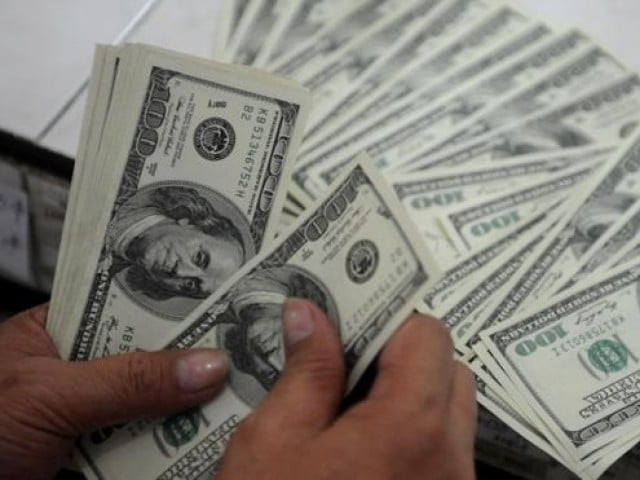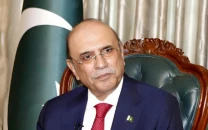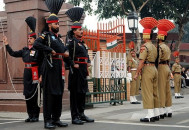Pakistan gets half of expected foreign economic aid
Inflows were $4.6b as fund releases from China, World Bank slow down

PHOTO AFP
Pakistan could receive only half of the $9.2 billion annual estimated foreign economic assistance during the last eight months largely because of less-than-anticipated inflows from China and the World Bank.
Disbursements by China were less than one-fifth of the annual estimate of $3.1 billion due to delay in finalisation of financing agreements for infrastructure projects under the China-Pakistan Economic Corridor (CPEC).
US budget 2016-17: Obama proposes $860m aid for Pakistan
From July through February, the government received $4.6 billion in foreign economic assistance, of which almost 90% was in the shape of loans, according to the Economic Affairs Division. The receipts were half of the annual estimate of $9.2 billion.

Being a low middle-income country with unsatisfactory government revenues, Pakistan is heavily dependent on foreign loans to finance the budget and undertake infrastructure projects. However, the slow pace of work on these schemes, delay in getting approvals and problems in the award of contracts often lead to less-than-anticipated disbursements. This compels the government to tap unconventional expensive sources of financing.
In the current fiscal year, the government expects to receive $3.1 billion from China. However, so far, the disbursements stood at $576 million or roughly 19% of the estimate.
'Tied aid' is better than no aid
A major reason behind the slow pace of disbursements was the delay in finalisation of financing agreements for road projects of the eastern route of CPEC. Both countries have not yet been able to sign financing deals for Multan-Sukkur section of the Lahore-Karachi Motorway and the Thakot-Havelian road project. Pakistan had expected to receive $579 million from China for these two projects, but so far nothing has been released.
The Ministry of Communication lately objected to the interest rates that China wanted to impose on these loans, although the government had initially agreed to the rates offered by the Chinese, said sources in the Ministry of Finance.
China also did not disburse funds for the New Gwadar International Airport. On the other hand, a cross-border optical fibre project has made a significant headway.
In the last eight months, Beijing gave $175 million for the Karachi Nuclear Power Plant against annual estimate of $896 million. It also disbursed $106 million for the Neelum Jhelum hydropower project and $78 million for Chashma Nuclear Power Plants.
World Bank
The disbursements by the World Bank also remained below expectations. Against the annual estimate of $1.8 billion, the bank gave $713 million or 39% in the July-February period. This included $500 million in budget financing loan, suggesting that project lending was not picking up.
The release of another $500 million for budget financing is tied to the listing of State Life Insurance Corporation (SLIC) on the Pakistan Stock Exchange that requires amendments to the SLIC Act.
ADB
The Asian Development Bank (ADB), the other strategic financial partner, gave $676.6 million or two-thirds of the annual estimate of $1.1 billion.
Saudis to give Pakistan $122m in aid
Apart from these, the government also borrowed $973.5 million from a consortium of commercial banks and $500 million by floating Eurobonds in September last year. This is unconventional borrowing prompted by less-than-anticipated inflows from multilateral agencies.
The slowdown in the flow of project financing by the traditional lenders indicates serious problems the country is facing in managing development schemes. Implementation remains a problematic area.
The Islamic Development Bank, which is expected to give $1.3 billion this fiscal year, provided $592.5 million or 47% of the annual estimate.
Of the $4.6 billion the country received in eight months, $412 million was on account of grants. The United Kingdom has replaced the United States as the largest donor as it provided $251 million in grant for the social sector from July through February. The US gave $114.4 million during this period.
Published in The Express Tribune, March 30th, 2016.
Like Business on Facebook, follow @TribuneBiz on Twitter to stay informed and join in the conversation.



















COMMENTS
Comments are moderated and generally will be posted if they are on-topic and not abusive.
For more information, please see our Comments FAQ